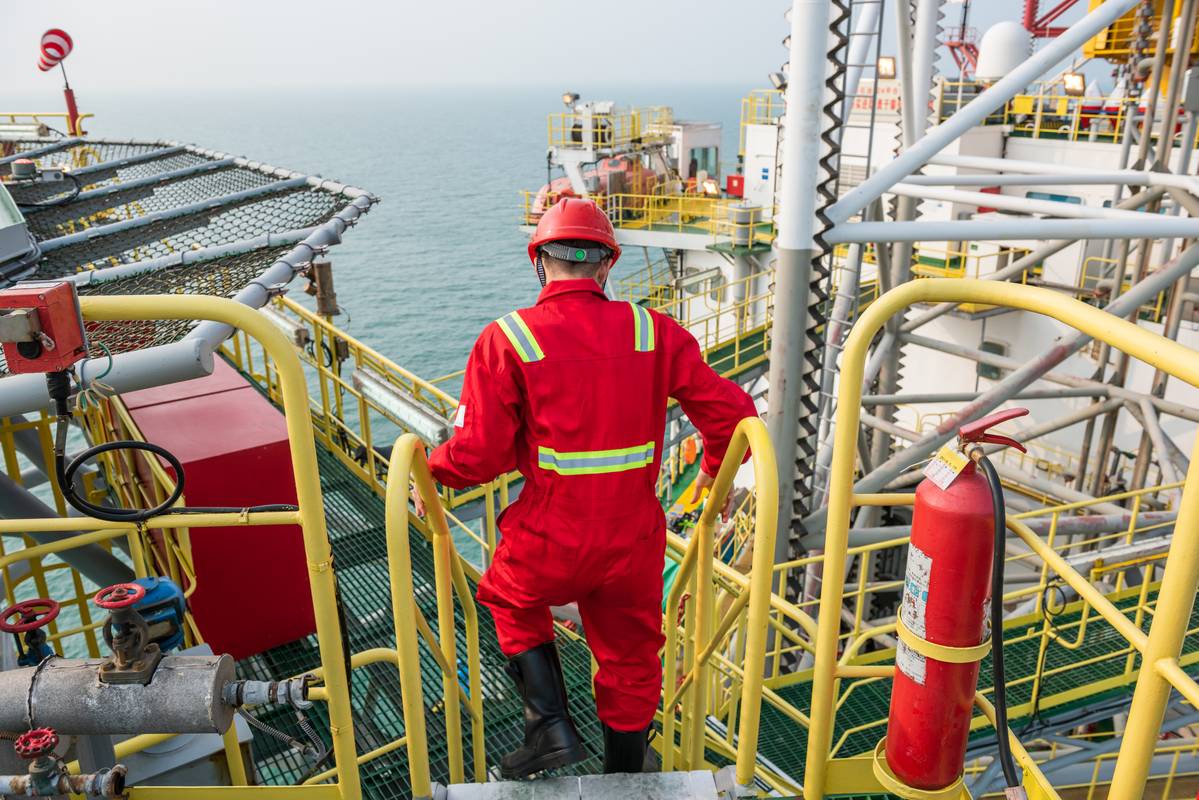API RP 75, 4th edition: A Proactive Approach to Offshore Safety Excellence
In the world of offshore operations, where conditions are both demanding and unpredictable, precision and reliability are essential, complemented by a steadfast commitment to safety and environmental stewardship. Achieving this balance isn’t left to chance. It’s the result of robust training and the kind of proactive safety culture advanced by the Center for Offshore Safety (COS) and supported by the 4th edition of API Recommended Practice 75 (API RP 75).
For over a decade, COS has been at the forefront of fostering this culture of safety, equipping offshore operators with the guidance needed to meet the evolving demands of Safety and Environmental Management Systems (SEMS). At the heart of this effort is API RP 75, Recommended Practice for a Safety and Environmental Management System for Offshore Operations and Assets.
First introduced in 1993 and updated over time, the third edition (2004) was eventually incorporated into U.S. regulations by the Bureau of Safety and Environmental Enforcement (BSEE), establishing itself as a critical benchmark for safety on the Outer Continental Shelf (OCS). However, the growing complexity of offshore operations, along with advancements in technology and the global expansion of energy projects, led to an update of the standard: API RP 75, 4th edition, published in 2019.
A Shift in Approach: From the 3rd to the 4th Edition
The 4th edition of API RP75 introduces significant changes from its previous edition. While the 3rd edition focused on prescriptive requirements, the 4th edition emphasizes a performance-based framework designed to achieve measurable safety and environmental outcomes. This change requires operators to adapt their approach to SEMS implementation, developing systems customized to their unique operations.
Leadership plays a central role in the 4th edition, which highlights the importance of coordinating safety and environmental programs across contractors, co-owners and partners. It also emphasizes the interaction and interdependence of SEMS elements, addressing the industry’s growing need for advanced training. Finally, as third-party audits accelerate their focus to enable operator implementation of actions to prevent recurrence of problems, the 4th edition highlights the need to coordinate all the evaluation and improvement tools in their SEMS arsenal.
Collectively, these changes reflect a significant evolution in offshore safety. And aligning an organization’s practices with its principles enhances safety outcomes and reinforces its commitment to advancing a proactive safety culture, making it an essential standard for industry professionals.

Training to Maximize Safety Practices
Indeed, adopting the 4th edition of API RP 75 aligns an organization’s practices with the industry’s latest performance-based approaches. All change requires some effort, and organizations need to assure a coordinated consistent message is delivered, particularly when mindsets may need adjusting for increased coordination of SEMS elements.
Recognizing this need, COS has developed a comprehensive training program that bridges the gap between the prescriptive approach of the 3rd edition and the performance-based outcomes required by the 4th.
COS’s training program consists of three modules:
-
Module 1 (online): Foundations of the 4th Edition
This online course provides an overview of the 4th edition, focusing on its performance-based framework and the interaction of SEMS elements. Participants will learn how SEMS elements interact and depend on one another.
-
Module 2 (online): Planning SEMS Audits
This online module introduces the principles of audit planning. Participants will learn the importance of understanding the variables within the organization and sites being audited that impact scheduling and assigning auditors.
Participants will also learn about site selection, work assignments, and scheduling tips for assuring audit objectives are achieved.
-
Module 3 (onsite): Conducting SEMS Audits
Delivered in-person, this module provides hands-on training on performing a SEMS audit based on RP 75 4th Edition. Participants will explore how compliance findings can uncover underlying system weaknesses and how issues in one SEMS element may impact others. The hands-on training equips participants to deliver actionable insights that promote continual improvement through effective corrective actions.
While preparing participants to align their SEMS program with API RP 75, 4th edition, the training also provides a strong foundation for understanding API RP 75W, Safety and Environmental Management System for Offshore Wind Operations and Assets, introduced in 2024. The two recommended practices are nearly identical, with only minor adjustments in terminology and examples, making this training invaluable for professionals operating across both traditional offshore energy and renewables.
Looking Ahead
By emphasizing leadership, coordination and the interdependence of SEMS elements, the 4th edition challenges organizations to move beyond compliance and toward proactive, outcome-driven safety management.
For industry professionals, embracing the principles in API RP 75, 4th edition, enhances safety outcomes and reinforces their organization’s commitment to operational excellence and environmental stewardship in an increasingly complex offshore landscape.
For more information on API training courses, visit api.org/training (SEMS training information will be available in early 2025).
